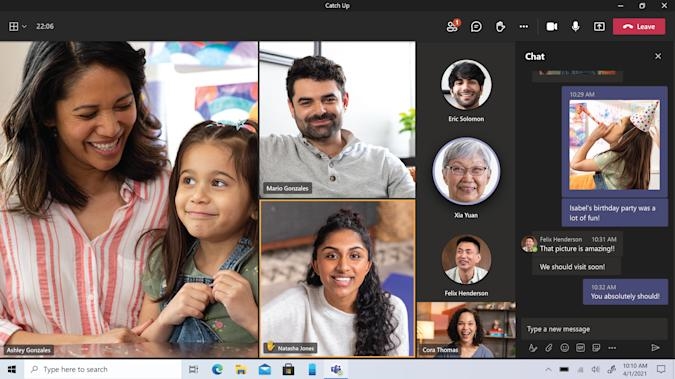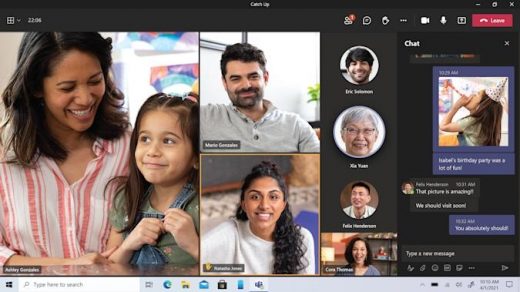Microsoft fixed a Teams bug that prevented 911 calls on Android
Microsoft Teams is ready for ‘friends and family’
After almost a year in preview, Teams has a bunch of new features for personal use.


Microsoft Teams is well-known as a competitor to Slack for workplace communications, but almost a year ago the company announced it was also getting some features geared at using it with family or friends. After a long preview period, Microsoft is announcing that Teams is now available to anyone and free for personal use.
If you haven’t tried Teams for personal use yet, it includes core features from platforms like Slack and Discord, including video calling, chat, integration with files you’re working with and so on. Today’s announcement highlights the kinds of features Microsoft is aiming at people who want to use it with friends and families. For example, “Together Mode” is a twist on video calling that puts you and your callers into a virtual shared environment; Microsoft says this actually reduces video call fatigue “because your brain doesn’t have to work as hard when compared to a standard video call.”
Another personal feature on Teams is reacting using live emoji and GIFs during video calls. And Microsoft says that you don’t need to worry about multiple links depending on what device you’re using — one link will work on the web, on PCs and Macs and on mobile. That’s a pretty standard feature for video conferences, but it’s still helpful.
Microsoft also has some organization features baked into Teams, including things like shared to-do lists in a group chat. You can start a chat with a specific group and then build out a list and assign items to just those people. Teams also lets you take any message and turn it into a to-do item, so if someone asks you to do something, that message can be converted into an item for your task list.
Similarly, you can start polls with group chats and then take actions directly from the poll once it is complete, like setting up a video call or a calendar entry. Finally, Teams incorporates a “dashboard view” that lets you see everything shared with your group, including files, photos, links, events, shared tasks and more.
If you’re someone who uses Teams for business, Microsoft made it clear that Teams for personal use is entirely distinct from the work side of the product. Everything is kept separate, but the desktop app makes switching between the two modes trivial. Again, this sounds not dissimilar to having multiple Slack workplaces. But given that plenty of people are using Slack for personal communications, it makes sense that Microsoft is going to make the personal side of Teams more engaging as well.
(22)


